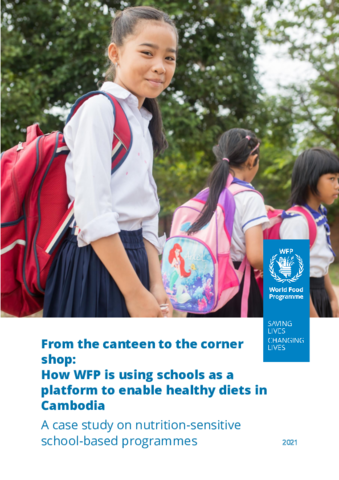
Cambodia has gone through a ravishing development over the last 30 years. GDP has grown significantly with an average annual growth of over 7 percent a year. The economic development has meant that Cambodia went from being one of the world’s poorest countries to achieving lower-middle income status in 2014. Unfortunately, nutrition indicators did not follow this positive trend. While Cambodia has experienced a reduction in stunting of 10 percentage points between 2005 and 2014, the country is still suffering from what is categorized by WHO as very high levels. With 32,4 percent - or over 480,000 children under 5 – suffering from chronic malnutrition and just under 10 percent being wasted, undernutrition is still very much a real issue in Cambodia. Micronutrient deficiencies are also very common and over 65 percent of children suffer from at least one deficiency, with Iodine being the most common. At the same time, Cambodia is going through a nutrition transition. With the increased wealth, the population’s economic access is rising and with that, calorie intake has increased. From 2000 to 2014, the number of overweight and obese women of reproductive age tripled. Considering the inter-generational effects of malnutrition, this development is alarming for the next generation and the current eating habits of schoolchildren are in risk of making bad worse. Two studies conducted by WFP in collaboration with HKI and 17 triggers indicate a high consumption of unhealthy snacks – many being eaten during the school day.
With this in mind, WFP has been working to design a comprehensive nutrition-sensitive approach to the school-meals programme. This work is currently focused around three main topics: the school meal itself; nudging positive behaviour changes and creating an enabling environment, which fosters good nutrition outcomes



